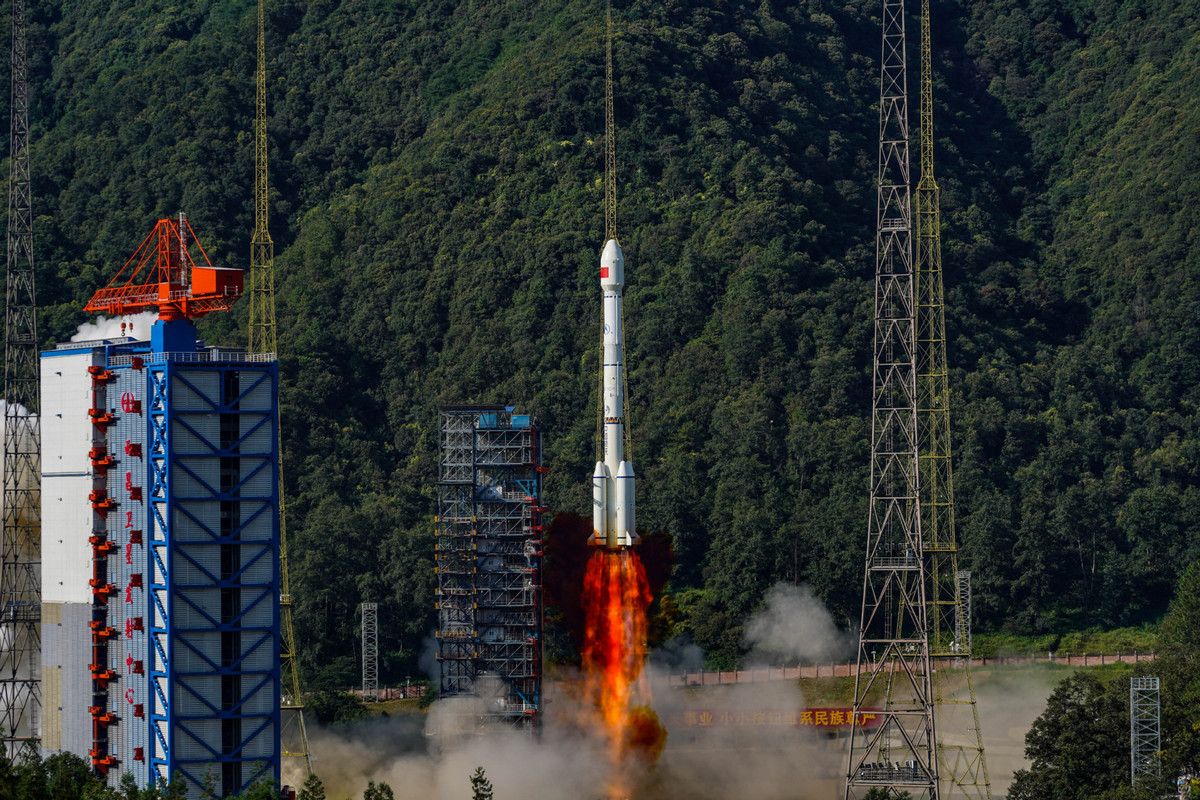source: editor:Zhang Wenni
The satellites were carried by a Long March 3B rocket that lifted off at 9:14 am from the Xichang Satellite Launch Center in Southwest China's Sichuan province and were deployed into a medium-Earth orbit. They are the 14th group of third-generation Beidou satellites operating in medium-Earth orbits and also the second batch deployed in such an orbit since the completion of the Beidou global system, the office said in a news release.
The two satellites will start formal operation after a period of in-orbit technical verification, it said, noting that they are equipped with upgraded atomic clock system and new inter-satellite data link.

The 59th and 60th satellites of the Beidou system are launched at 9:14 am (Beijing Time) by a Long March 3B carrier rocket and the Yuanzheng 1 (Expedition 1) upper stage attached to the carrier rocket from the Xichang Satellite Launch Center in Southwest China's Sichuan province, Sept 19, 2024. [Photo/Xinhua]
In addition to positioning and navigation services, the pair will also demonstrate new technologies to be used on the next-generation Beidou system, according to the release.
Beidou is China's largest civilian satellite system and one of four global navigation networks, along with the United States' GPS, Russia's GLONASS, and the European Union's Galileo.
Since 2000, a total of 64 Beidou satellites, including the first four experimental ones, have been lifted on 47 Long March 3 series rockets from Xichang.
In July 2020, the system was declared complete and began providing full-scale global services.
Currently, there are more than 50 Beidou satellites in active service, including the latest pair.